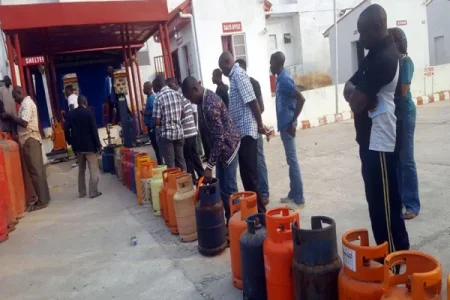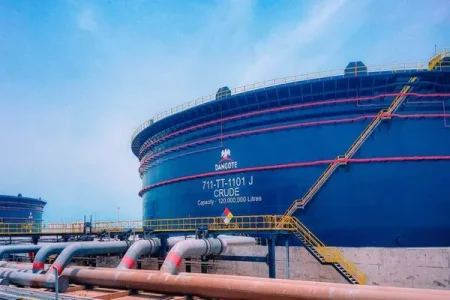
The price of cooking gas in Nigeria has soared to N1,250 per kilogram, intensifying financial strain on households. As many turn to harmful alternatives like charcoal and firewood, health risks increase. The government is urged to address foreign exchange challenges to prevent further hardship and environmental damage.
The escalating cost of cooking gas in Nigeria, now reaching N1,250 per kilogram, has placed immense strain on households already battling economic difficulties. This surge, a sharp increase from the N500 price in 2018, is severely impacting daily life, forcing many Nigerians to seek alternative cooking methods.
Tosin Adelakun, a resident of Lagos, expressed her frustration, noting that despite juggling multiple jobs, affording necessities like cooking gas has become increasingly challenging. The price hike is more than just a financial inconvenience; it is a significant blow to many families relying on Liquefied Petroleum Gas (LPG) for daily meals.
Recent data from the National Bureau of Statistics indicates a 71.23% rise in cooking gas prices since June 2023, further deepening the financial woes of citizens. Many have resorted to using cheaper, yet harmful, alternatives like charcoal and firewood. These methods not only threaten the environment but also pose serious health risks, particularly for women and children. Reports show that over 98,000 deaths annually in Nigeria are linked to the use of these traditional fuels.
The Nigerian Association of Liquefied Petroleum Gas Marketers attributes the price surge to foreign exchange challenges, urging the government to address these issues to prevent further hardship. Without intervention, the reliance on hazardous cooking methods may continue to grow, exacerbating health and environmental problems across the nation.



![[FULL LIST] Tinubu Appoints IBB's Son, Others to Lead Key Agencies](/data/attachments/219/219051-c45e0723af5235b4e99b88eb1fa579fd.jpg?hash=su4VHIBpS9)
